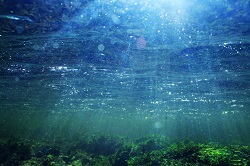Human activities trigger change in marine ecosystems
Marine ecosystems are constantly subject to anthropogenic and environmental factors that cause them to change. From fishing and pollution, to climate change and invasions of non-native species, these factors have existed since prehistoric times but little is known about their cumulative impact. In order to get a better understanding of these processes, the BIOWEB project has examined the web of influence over time on marine environments. It has delved into what this might mean for the services that marine ecosystems provide, such as food production and tourism. Cumulative impacts on marine ecosystems ‘BIOWEB has found that cumulative impacts on marine ecosystems are essential to explaining the past and current dynamics of changes seen in marine resources,’ says Marta Coll, BIOWEB project coordinator. ‘In general marine ecosystems today have fewer large organisms like marine mammals, large fish and sharks and more small fish and invertebrates like small crustaceans and pelagic cnidarians like jellyfish. These organisms tend to be less commercial. There are also more invasive species. In some cases they can have a commercial value, but in others they can be poisonous and dangerous for humans.’ Another trend the project has observed is fluctuations in marine productivity. Productivity levels are rising in coastal zones due to organic pollution from sewage and agricultural run-off, which can cause eutrophication. In some cases, these areas have seen a decrease in oxygen and even anoxic conditions closer to the seabed. Meanwhile, productivity levels in open ocean systems may be decreasing. ‘This may be due to higher stratification of the water column and a reduction in mixing of nutrients in the bottom of the ocean due to an increase of sea surface temperatures. Weaker surface winds and a reduction in water coming from river runoff may also contribute to these phenomena,’ Coll explains. More vulnerable ecosystems These changes have significant impacts, making marine ecosystems more variable, less resilient to change and more prone to unpredictable shifts. This could lead to a drop in the productivity of commercial marine species, as well as a failure of conservation measures for non-commercial species, the project found. And it’s not just fishing and conservation that could be affected. ‘When species like jellyfish and exotic fish - which can be toxic - become more abundant, tourism might be affected,’ elaborates Coll. BIOWEB also found that changes can run deeper in certain marine environments. Fishing has a large impact on marine resources worldwide, but its impact is especially marked in areas with poor resource management such as the Mediterranean Sea. Around 90 % fish stocks in this area are over-exploited. Habitat loss and change in coastal land zones can disturb marine ecosystems and will continue to grow, the project found. The exploration and mining of mineral resources in the sea, like underwater oil fields, as well as deep sea fishing, may also provoke changes in the future. BIOWEB also discovered that climate change is having a substantial effect. ‘It is already very influential on some species and areas where sea temperatures and acidity levels have risen. This will certainly increase in the future with uncertain outcomes,’ Coll explains. ‘Finally, enclosed regions like the Baltic Sea and Mediterranean Sea, are even more vulnerable to invasions of non-native species – and this threat will continue to rise in the future.’ For more information please see: project page on CORDIS
Countries
France



